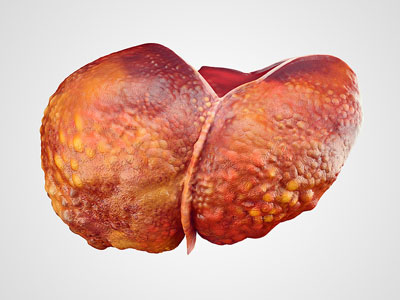Alcohol abuse refers to excessive and repetitive consumption of alcohol, which can have severe consequences on a person’s health, mental well-being, and relationships. Despite being a widely accepted and consumed substance, excessive alcohol consumption can lead to numerous physical, mental, and social problems that can last for years, even after a person has stopped drinking. The negative effects of alcohol abuse can range from liver damage, heart disease, and pancreatitis, to depression, memory impairment, and relationship problems.

We’re going to focus on the long-term effects of alcohol abuse and the importance of seeking help for those struggling with excessive alcohol consumption. Understanding the consequences of alcohol abuse can be a powerful motivator for individuals to seek help and make positive changes in their lives. With proper treatment and support, it is possible to overcome the negative effects of alcohol abuse and achieve long-term recovery.
Physical Effects of Alcohol
Liver Damage:

Liver damage is one of the most significant long-term effects of alcohol abuse. The liver is responsible for breaking down and removing toxic substances, including alcohol, from the body. When a person drinks excessive amounts of alcohol, the liver becomes overwhelmed and unable to function effectively. Over time, this can lead to liver cirrhosis, a condition in which the liver becomes scarred and cannot perform its functions properly.
Cirrhosis can cause severe health problems, including jaundice, abdominal swelling, and an increased risk of liver cancer. Jaundice is a yellowing of the skin and eyes caused by a buildup of bilirubin, a substance produced by the liver. Abdominal swelling, or ascites, can occur as a result of cirrhosis, causing the belly to enlarge due to the buildup of fluid.
Liver cancer is a potentially life-threatening condition. It is important to note that liver damage caused by alcohol abuse is often irreversible and can only be managed, not cured. Therefore, it is crucial to seek help and address alcohol abuse as soon as possible to prevent the development of liver cirrhosis and other serious health problems.
Cardiovascular Disease:

The cardiovascular effects of alcohol abuse can be severe and long-lasting. Excessive alcohol consumption can increase blood pressure, leading to an increased risk of stroke and heart disease. High blood pressure puts extra strain on the heart and blood vessels, which can lead to serious health problems. Alcohol abuse can also cause damage to the heart muscle, leading to heart failure, a condition in which the heart is unable to pump blood effectively.
Additionally, alcohol abuse can increase the risk of developing atrial fibrillation, a heart rhythm disorder that increases the risk of stroke and other serious health problems, as well as cardiomyopathy, a condition in which the heart muscle becomes enlarged and weakened.
By seeking help and addressing alcohol abuse as soon as possible, you can prevent the development of cardiovascular disease and other serious health problems. With proper treatment and support, it is possible to overcome the negative effects of alcohol abuse and achieve long-term recovery.
Pancreatitis:
Another physical effect of alcohol abuse is pancreatitis, a condition in which the pancreas becomes inflamed. This can lead to severe abdominal pain and increased risk of pancreatic cancer. Alcohol abuse can also cause damage to the insulin-producing cells in the pancreas, leading to a higher risk of diabetes.
Mental Health Effects of Alcohol
Depression and Anxiety:
Excessive alcohol consumption can have a major impact on a person’s mental health, including increasing the risk of depression and anxiety. These conditions can make life incredibly difficult, causing feelings of sadness, hopelessness, and worthlessness. While alcohol can make some people feel good temporarily, it is actually a central nervous system depressant that can impair brain function and contribute to feelings of depression.
It’s important to understand that if you or someone you know is struggling with depression and anxiety due to alcohol abuse, you are not alone. Dual diagnoses, in which a person suffers from alcoholism and other mental illnesses in parallel, are common in addiction. Seeking help is a sign of strength and a step towards a better future.
Memory Impairment:
Alcohol abuse can also cause memory impairment. Alcohol can damage the brain and affect the ability to recall information and events. This can lead to difficulty remembering things, and in severe cases, memory loss. Additionally, alcohol abuse can impair decision-making and increase the risk of developing dementia in later life.
Social Effects of Alcohol
Relationship Problems:

Alcohol abuse has a significant impact on personal relationships. It causes arguments and conflict, leading to relationship problems and even breakups. Additionally, alcohol abuse can interfere with work and family responsibilities, further straining relationships and leading to social isolation.
The effects of alcohol abuse on personal relationships can be long-lasting and far-reaching. However, with proper treatment and support, it’s possible to overcome the negative effects of alcohol abuse and rebuild relationships. Whether through therapy, support groups, or medication-assisted treatment, there are many options available to help individuals manage their alcohol consumption and improve their personal relationships.
Legal Problems:
Finally, let’s talk about the legal problems that can come with alcohol abuse. Drinking too much can impair your judgment and increase your risk of engaging in risky behaviors, leading to legal trouble. And if you’re spending a lot of money on alcohol, you may also have financial problems.
Conclusion:
Alcohol abuse can have severe and long-lasting effects on a person’s physical health, mental well-being, and relationships. From liver damage and cardiovascular disease to depression and memory impairment, the consequences of alcohol abuse can last for years, even after a person has stopped drinking.
If you or someone you know is struggling with alcohol abuse, it is important to seek help from a healthcare professional. With proper treatment and support, it is possible to overcome the negative effects of alcohol abuse and achieve long-term recovery. Treatment options may include therapy, support groups, and medication-assisted treatment, among others.
It is important to seek help as soon as possible, as the longer a person continues to abuse alcohol, the more severe the consequences can be. By addressing alcohol abuse early, individuals can take control of their lives and work towards a healthier, happier future.
Remember, seeking help is a sign of strength and a step towards a better future.




